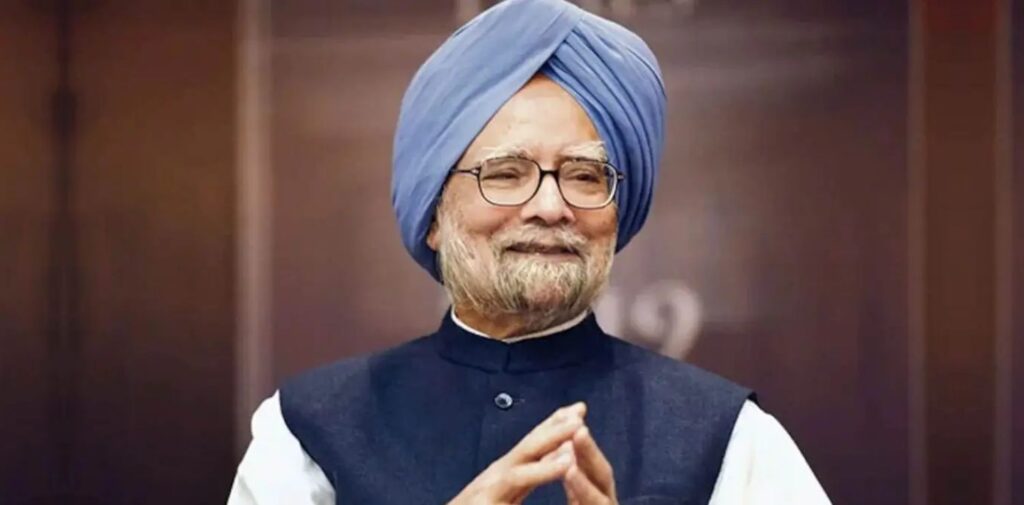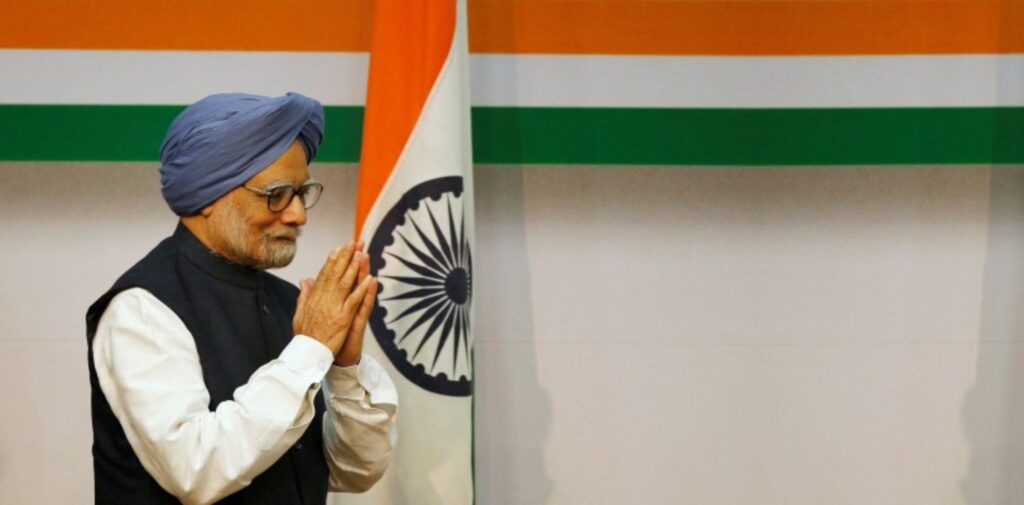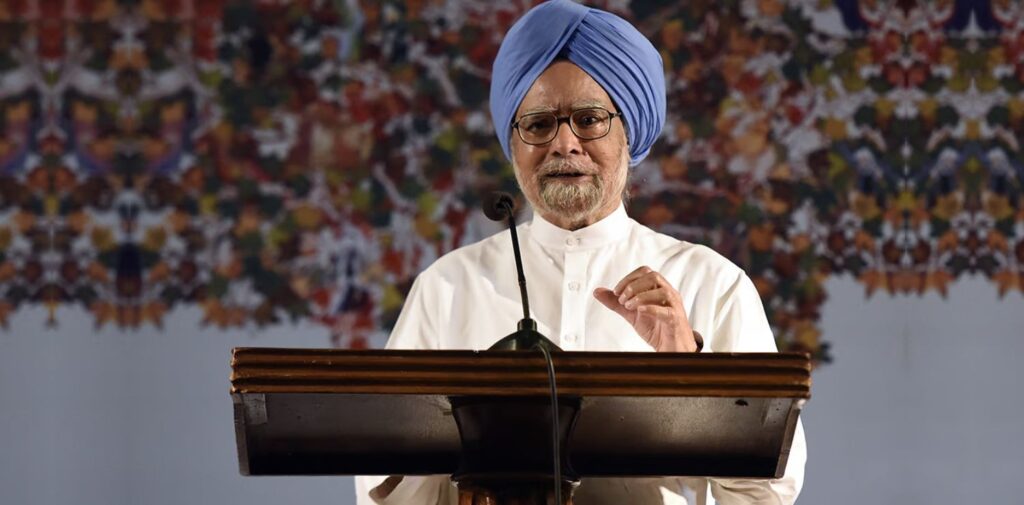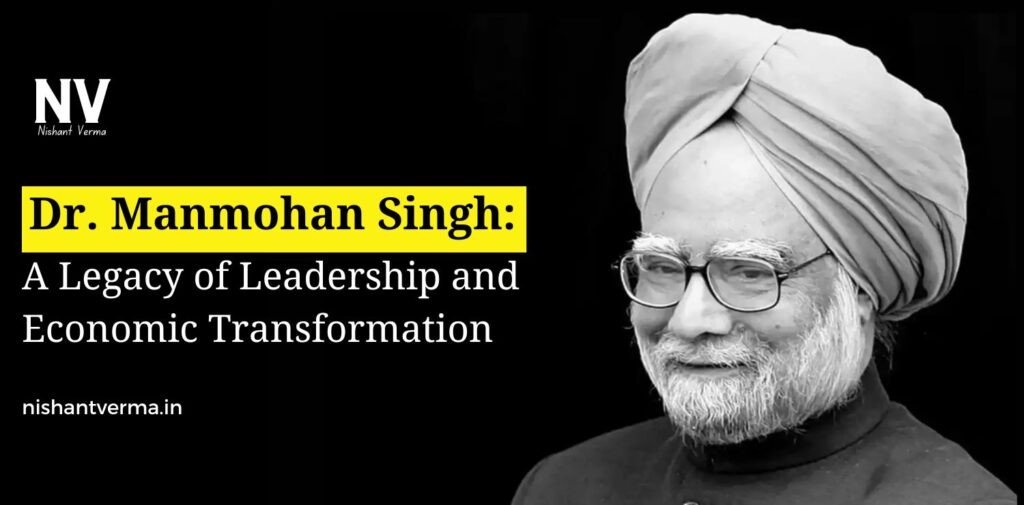Dr. Manmohan Singh, the 13th Prime Minister of India, is a name synonymous with India’s economic liberalization and transformation. Serving as the Prime Minister from 2004 to 2014, Dr. Singh’s leadership was marked by intellectual rigor, humility, and an unwavering commitment to economic reform. Known for his quiet demeanor and intellectual brilliance, Dr. Singh’s legacy remains deeply entrenched in India’s growth trajectory, both as an economist and as a statesman.
Early Life and Education
Born on September 26, 1932, in the village of Gah (now in Pakistan), Dr. Singh’s early life was shaped by the tumult of India’s partition in 1947. His family migrated to India, where he completed his education. He was an exceptional student, excelling at both school and university levels. Dr. Singh earned his degree in Economics from Panjab University and later pursued higher studies at the University of Oxford and the University of Cambridge in the United Kingdom.
Dr. Singh’s academic background provided him with a solid foundation in economic theories and international policies, setting him on the path to become one of India’s most distinguished economists.

Economic Vision and Reforms
Dr. Manmohan Singh’s most significant contribution to India came during his tenure as Finance Minister from 1991 to 1996. This was a period of severe economic crisis, with India facing a balance of payments crisis, soaring inflation, and foreign exchange reserves at an all-time low. As Finance Minister under Prime Minister P.V. Narasimha Rao, Dr. Singh played a key role in implementing a series of bold and far-reaching economic reforms. These included reducing import tariffs, privatizing state-owned enterprises, and encouraging foreign investment—laying the groundwork for India’s integration into the global economy.
His economic reforms, widely referred to as India’s “economic liberalization,” transformed the country from a largely closed economy into one that was more competitive, open to global markets, and capable of attracting foreign investment. These changes led to rapid economic growth, rising incomes, and the expansion of India’s middle class. Today, India is one of the fastest-growing economies in the world, a transformation that Dr. Singh’s policies helped ignite.
Prime Ministership: A Quiet Leader
Dr. Singh’s tenure as Prime Minister from 2004 to 2014 was a time of continued economic progress, but it was also a period of significant challenges. Under his leadership, India saw continued growth, especially in the IT and services sectors, and the country emerged as a global player on the world stage. Dr. Singh was instrumental in forging strong international relations with countries across the world, furthering India’s role in global organizations such as the United Nations, the G20, and BRICS.
Despite facing numerous hurdles—ranging from internal party struggles to challenges with coalition politics—Dr. Singh maintained a steady hand, making decisions based on the welfare of the nation. He was known for his calm, measured approach, rarely showing the flamboyance or fiery rhetoric that is often associated with political leaders. Instead, his leadership was grounded in rationality, long-term vision, and meticulous planning.

Economic Challenges and Criticisms
However, Dr. Singh’s tenure as Prime Minister was not without its criticisms. While India’s economy grew, it also faced challenges, including rising inflation, corruption scandals, and a slowdown in reforms in the latter part of his tenure. The 2008 global financial crisis, coupled with domestic economic management issues, tested his leadership. His government was accused of failing to address issues such as corruption in key sectors and a lack of reform in critical areas like the energy sector.
Nevertheless, Dr. Singh remained focused on India’s long-term goals. He championed initiatives like the National Rural Employment Guarantee Act (NREGA), which aimed to provide employment opportunities for rural households, and the Right to Education Act, which sought to improve literacy rates across India. While his critics focused on his perceived inability to act decisively at times, many acknowledged that his vision and commitment to India’s growth were undeniable.
Humility and Integrity
One of the most remarkable aspects of Dr. Manmohan Singh’s leadership was his personal integrity and humility. Unlike many political leaders, Dr. Singh preferred to stay out of the limelight and shied away from public attention. He was a leader who let his work speak for itself. Known for his scholarly approach and his calm, reserved nature, he always placed the nation’s interests above personal or political gains.
Even when facing political pressure and challenges within his party and coalition, Dr. Singh maintained a focus on governance rather than political expediency. His reputation as a man of principles and honesty made him a respected figure, both in India and internationally.
Global Recognition
Dr. Manmohan Singh’s contributions were not confined to India. He earned recognition globally as a statesman who helped steer one of the world’s largest economies through times of turbulence. His ability to balance India’s domestic needs with global expectations made him a trusted voice in international economic and political circles. He was often called upon to participate in key summits and was widely regarded as an economist of immense repute.
He also worked on strengthening India’s relationship with key global powers, including the United States, Russia, and China. One of the landmark achievements of his tenure was the signing of the India-US civil nuclear deal in 2008, which reshaped India’s position in global nuclear governance.

Legacy
Dr. Manmohan Singh’s legacy is one of profound transformation. Under his leadership, India underwent an economic renaissance, emerging from the shadows of stagnation into the global spotlight. His vision for India as a modern, economically competitive nation continues to inspire policymakers and economists.
While his tenure as Prime Minister saw both successes and setbacks, Dr. Singh’s intellectual brilliance, quiet integrity, and commitment to India’s progress make him a towering figure in modern Indian history. His leadership during challenging times, coupled with his focus on inclusive growth and social welfare, left a lasting impact on the country’s development.
Today, as India continues to face new challenges and opportunities, the foundation laid by Dr. Manmohan Singh’s policies remains critical. Whether in terms of economic growth, international diplomacy, or the fight against poverty, his vision continues to guide the country forward. Dr. Singh may have preferred to remain in the background, but his contributions to India’s growth story will forever ensure that his place in history is assured.
Conclusion: Dr. Manmohan Singh
Dr. Manmohan Singh’s life is a testament to the power of quiet, intellectual leadership. A man of deep conviction and dedication, he led India through some of the most transformative years in its history. His legacy will always be remembered not just for the economic reforms he championed but for his commitment to the values of integrity, humility, and service to the nation.




